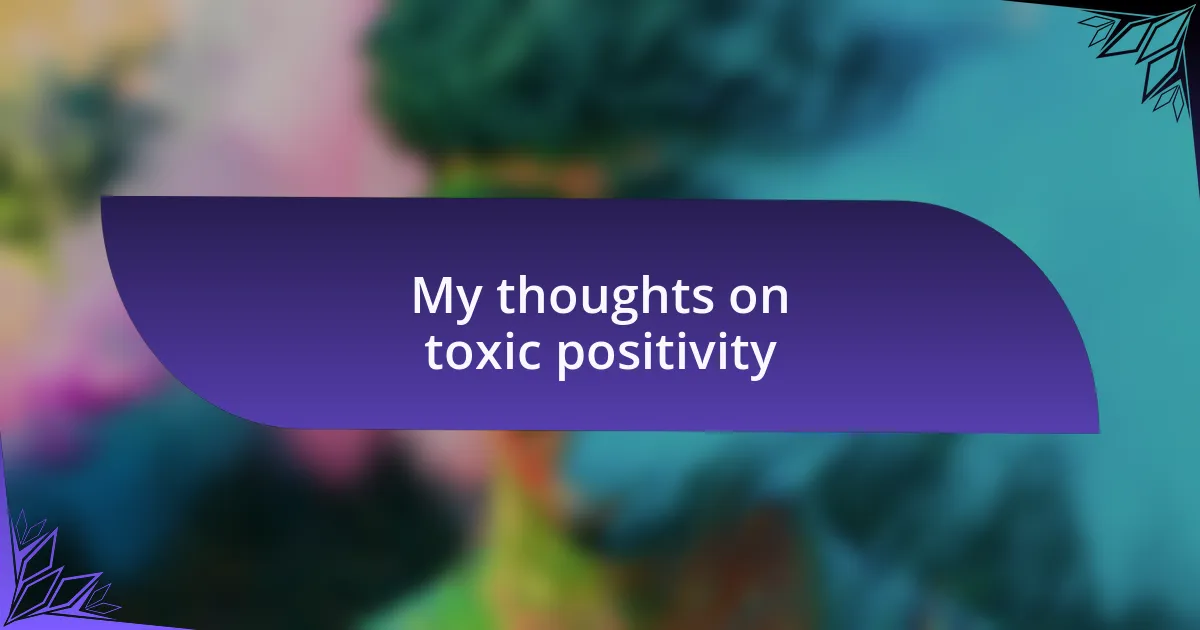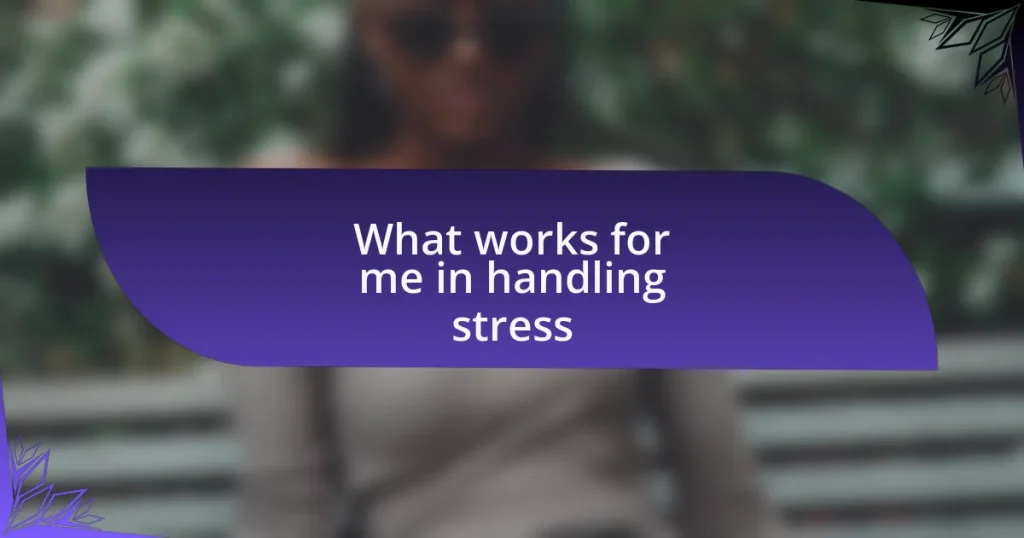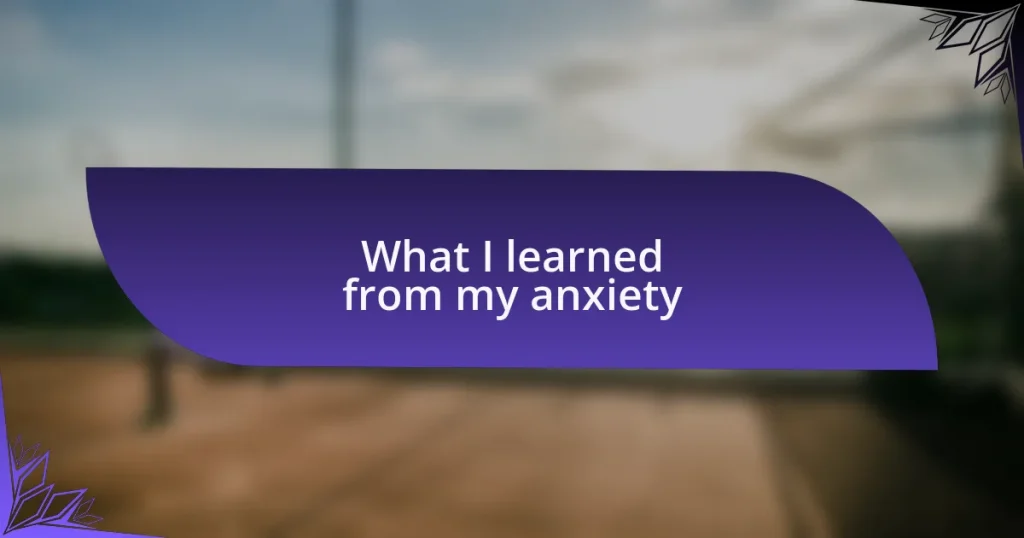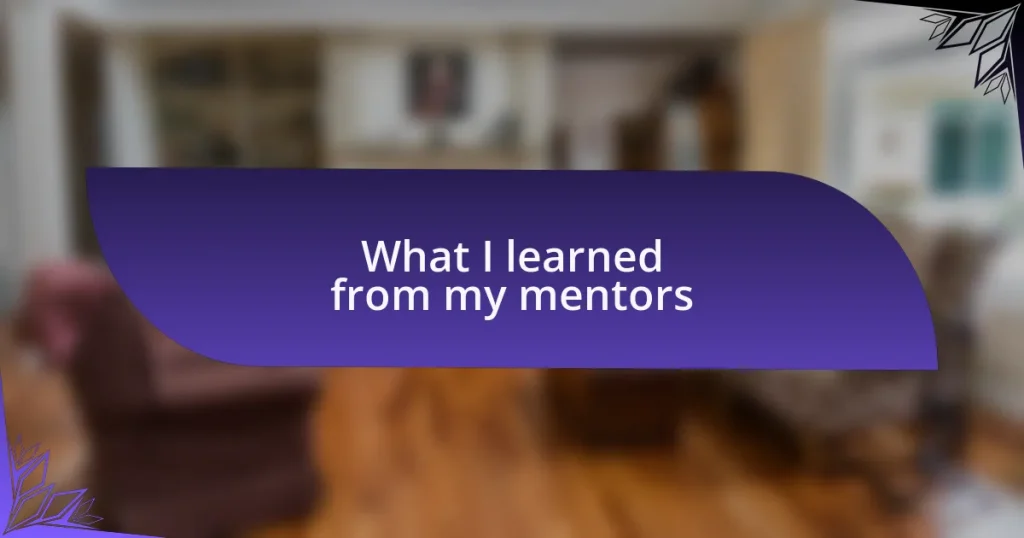Key takeaways:
- Toxic positivity dismisses legitimate emotions, creating pressure to suppress feelings and leading to isolation.
- Signs of toxic positivity include trivializing others’ struggles and responding with clichés instead of empathy.
- Overcoming toxic positivity involves practicing active listening, embracing vulnerability, and using empathetic language.
- Promoting healthy emotional expression can be achieved by creating safe spaces for sharing, modeling honesty, and encouraging reflective practices like journaling.
Author: Charlotte Pembroke
Bio: Charlotte Pembroke is a contemporary fiction author known for her evocative storytelling and richly developed characters. With a background in psychology, Charlotte weaves intricate narratives that explore the complexities of human relationships and the nuances of everyday life. Her debut novel, The Unfolding Light, garnered critical acclaim for its poignant exploration of grief and resilience. When she’s not writing, Charlotte enjoys hiking in the serene landscapes of her native Oregon, where she draws inspiration for her stories. She currently resides in Portland with her two rescue dogs and a growing collection of vintage typewriters.
Understanding toxic positivity
Toxic positivity is the belief that we should always maintain a positive outlook, regardless of the situation. I remember a time when I faced a significant setback, and a well-meaning friend told me to just “look on the bright side.” In that moment, I felt my feelings dismissed rather than supported, which left me grappling with my emotions in silence.
It’s fascinating how society often equates positivity with strength, creating an unspoken pressure to suppress negative emotions. Have you ever felt that pressure? I have, especially during difficult times when being told to stay positive only intensified my feeling of isolation. It’s crucial to acknowledge that it’s okay to feel sad, angry, or overwhelmed; these emotions are a natural part of the human experience.
When positivity becomes toxic, it can hinder genuine emotional expression and connection. I often reflect on how much more valuable it is to have friends who listen and validate my struggles than those who offer platitudes. After all, don’t we need both light and shadow to truly appreciate the depth of our experiences?
Recognizing toxic positivity signs
When it comes to recognizing signs of toxic positivity, one major indicator is when people dismiss legitimate feelings. I recall a conversation where I shared my frustration about work deadlines, and instead of discussing ways to cope, the response was a quick “Just stay happy!” This comment trivialized my stress, leaving me feeling more misunderstood than supported. Have you ever felt that dismissal?
Another telltale sign is the tendency to respond to others’ struggles with clichés rather than empathy. Once, I confided in someone about my anxiety before a presentation, and they replied, “You’ll be fine; just think positive!” While I appreciated their intention, it made me realize how often people default to these platitudes instead of offering a listening ear. It’s disheartening when authentic connection is replaced by superficial encouragement.
Additionally, if you notice that discussing challenges leads to discomfort or avoidance in others, that’s a red flag for toxic positivity. I remember feeling awkward after opening up about my feelings, as if my authenticity was viewed as a burden. It made me wonder: why is it so hard for us to have honest conversations about our struggles? True strength lies in acknowledging our vulnerabilities, not in masking them behind false positivity.
Strategies to overcome toxic positivity
One effective strategy to overcome toxic positivity is to practice active listening in conversations. I once found myself in a heartfelt discussion where a friend shared their deep sadness about a recent loss. Instead of offering empty platitudes, I focused on just being there—nodding, maintaining eye contact, and asking open-ended questions. This approach paved the way for a deeper connection rather than a superficial exchange. Have you ever felt truly heard when someone simply allowed you to express your feelings without interruption?
Another approach is to embrace vulnerability in your own life. I recall a time when I opened up about my struggles with self-doubt during a community event. Sharing my imperfections not only made others feel comfortable to share their own challenges but also reminded me that we’re all imperfect human beings. By fostering this environment, we create spaces where authentic dialogue can thrive, encouraging a shift away from dismissive positivity. How often do we find strength in our shared vulnerabilities?
Lastly, we can shift our language to be more empathetic and supportive. I started replacing phrases like “Just stay positive” with “It’s okay to feel what you’re feeling.” This simple change has transformed my interactions, as people no longer feel pressured to mask their emotions. It’s enlightening to see how language can impact our conversations profoundly. Have you tried adjusting your words to reflect the complexity of emotions? It can make all the difference.
Promoting healthy emotional expression
Promoting healthy emotional expression often starts with creating safe spaces for vulnerability. I remember attending a small gathering where the host encouraged everyone to share their highs and lows of the week. It struck me how much lighter I felt sharing my struggles alongside others. Have you ever noticed how these open exchanges can foster deeper connections? It’s as if releasing that emotional weight allows everyone to relate on a more profound level.
Another important aspect is modeling emotional honesty in our daily lives. I once posted an honest reflection on social media about feeling overwhelmed during a particularly stressful month. The flood of responses from friends who related to my experience opened my eyes to the power of authenticity. When we show our true selves, it invites others to do the same. Isn’t it remarkable how genuine expressions can lead to a ripple effect of honesty?
Lastly, encouraging reflection on our emotions can be a powerful tool. I developed a habit of journaling my feelings each evening, which has turned into a sanctuary for my thoughts. This practice doesn’t just help me process my emotions; it also clarifies what I want to share with others. How often do we take a moment to pause and reflect before we communicate? Taking that time can make our emotional expressions more meaningful and grounded.



